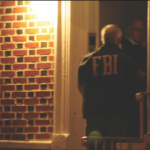Probable Cause, Search Warrants, and Confidential Informants
Information provided by confidential informants might have to be corroborated before they are used to support a valid search warrant.

Search Warrants, Confidential Informants, and Probable Cause
In the 2013 case of United States v Buffer, the 6th Circuit Court of Appeals (covering Michigan) released an opinion regarding probable cause, search warrants, and confidential informants. Memphis police received an anonymous call about suspected drug dealing from a particular home. An officer observed several visits to the house that lasted one to two minutes. He stopped a vehicle leaving the home and found a small amount of marijuana. Based on that, he sought and was given a search warrant for the house. For a search warrant, probable cause to believe a crime is or was committed is required. In terms of getting a search warrant, probable cause means law enforcement must show evidence that it’s more likely than not that evidence of a crime will be found in the place they want to search.
Probable Cause for a Search Warrant is Invalid Without Corroboration
The search warrant was declared invalid under the 4th Amendment of the United States Constitution because there was no information relative to the informant’s reliability, and the police officer needed to have corroborated the information. A few visits to a home and a small amount of marijuana without information that the marijuana came from that particular house was not enough to corroborate.
Evidence Suppressed – Good Faith Exception Invalid
The appellate court admonished that a reasonably well-trained officer would know the information was insufficient to provide probable cause, so it was not savable by arguing the mistake was made in good faith. A wrongful decision by a judge regarding the required probable cause for a search warrant is reviewable on appeal.
The good faith exception is a legal principle that allows evidence collected in violation of a person’s rights under the Fourth Amendment to be admitted in court if the law enforcement officers were acting under the belief that they were following legal procedures. This concept primarily applies when officers execute a search with a warrant that they believe to be valid but later found to be defective due to a clerical error or lack of probable cause. The rationale behind the good faith exception is to balance the need for law enforcement to rely on judicial decisions and clerical processes with the protection of individuals’ constitutional rights. The exception is designed to avoid penalizing officers for mistakes that are not their own and to prevent the exclusion of evidence that is otherwise reliable and important to a case, as long as the officer’s reliance on the defective warrant was reasonable and done in good faith. However, this exception does not apply in all circumstances, such as when the affidavit used to obtain the warrant is so lacking in probable cause that no reasonable officer would have relied on it or if the warrant was obtained through dishonesty or recklessness on the part of the affiant.

How Top Defense Lawyers Get Charges Dismissed Due to Bad Search Warrants
Michigan’s best criminal defense lawyers often succeed in getting charges dismissed due to bad search warrants by meticulously scrutinizing the process through which the warrant was obtained and executed. Their strategies typically involve a deep understanding of the Fourth Amendment, which protects against unreasonable searches and seizures, and a thorough knowledge of legal precedents and statutory requirements for a valid search warrant. Here’s how they might approach it:
- Examining the Affidavit for Probable Cause: Defense attorneys examine the affidavit supporting the search warrant application. They look for any flaws in the affidavit’s statements regarding probable cause. If the affidavit lacks sufficient facts to establish probable cause or contains inaccuracies, they can argue that the warrant was issued improperly.
- Identifying Constitutional Violations: Defense lawyers meticulously review whether the search warrant and how it was executed violated constitutional protections. This includes ensuring that the scope of the search was not broader than what the warrant authorized and that the warrant was not executed unreasonably.
- Challenging the Good Faith Exception: Even if a warrant is found to be defective, law enforcement may argue that the evidence should still be admissible under the good faith exception. Defense attorneys counter this by demonstrating that the officers executing the warrant could not have reasonably believed the warrant was valid, either because of egregious errors in the affidavit or because the warrant lacked specificity.
- Highlighting Technical Defects: Sometimes, the issue with a search warrant is technical, such as a lack of specificity about the place to be searched or the items to be seized. Top defense lawyers pay close attention to these details, arguing that any evidence obtained from a search that exceeds the boundaries of the warrant should be excluded.
- Leveraging Precedent and Statutory Law: Effective defense attorneys use relevant legal precedents and statutory laws to strengthen their arguments against the validity of a search warrant. They cite similar cases where evidence was suppressed due to issues with the search warrant to persuade the court to dismiss the charges.
- Motion to Suppress: The primary legal tool defense lawyers use to challenge bad search warrants is the motion to suppress evidence. If this motion is successful, and the evidence obtained from the search is crucial to the prosecution’s case, the charges may be dismissed due to a lack of evidence.
Top criminal defense lawyers’ ability to get charges dismissed on the grounds of a deficient search warrant hinges on their legal acumen, attention to detail, and persuasive advocacy. By thoroughly challenging the validity of the search warrant and the evidence it yielded, great attorneys, such as those with LEWIS & DICKSTEIN, P.L.L.C., can protect their clients’ rights and secure favorable outcomes in cases where constitutional violations have occurred.
Why must law enforcement establish probable cause to obtain a search warrant?
Law enforcement must establish probable cause to obtain a search warrant as a fundamental safeguard against unreasonable searches and seizures, which is protected under the Fourth Amendment of the U.S. Constitution. This requirement ensures that the government respects individuals’ privacy rights and does not intrude into their lives without a justified reason. Probable cause acts as a threshold that law enforcement must meet by demonstrating to a neutral judge or magistrate that there is a reasonable basis to believe a crime has been committed and that evidence related to that crime can be found in the place they wish to search. This process prevents arbitrary or groundless searches, thereby protecting citizens from potential abuse of power by the authorities. By necessitating a demonstration of probable cause, the legal system balances the needs of law enforcement to investigate crimes and the rights of individuals to be free from unwarranted government intrusion.

Michigan criminal defense attorney with expertise in search and seizure matters.
It is vital that you have expert legal representation when your freedom is at stake. The attorneys at LEWIS & DICKSTEIN, P.L.L.C. are experts in criminal defense. Criminal defense is all we do. We have decades of experience representing people in both state and federal courts. If you have questions about a judge or magistrate’s finding that the required probable cause for a search warrant was sufficient, we offer a free consultation. We can review your case to determine if there was a 4th Amendment Violation of your rights.
Call us today at (248) 263-6800 for a free consultation or complete an online Request for Assistance Form. We will contact you promptly and find a way to help you.











